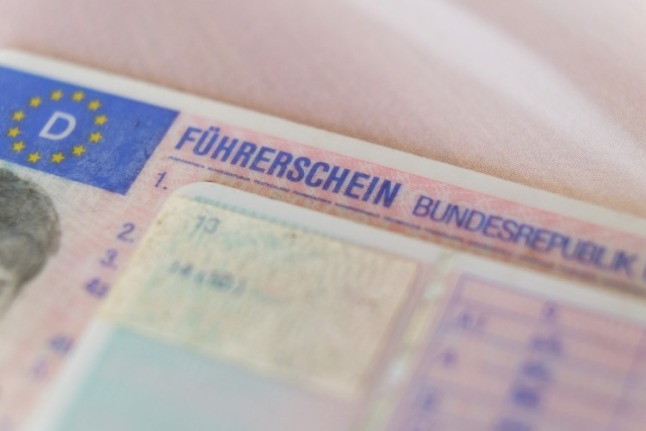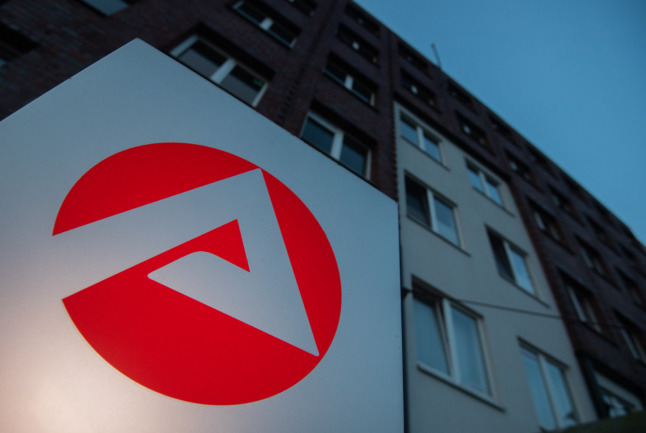Everything that changes in Germany in 2022

There are several important changes taking place in day-to-day life in Germany next year. There is good news on electricity bills, a streamlined unemployment system and also some tax hikes.
These are some of the changes most likely to affect the lives of internationals living in Germany.
Jump in minimum wage
The national minimum wage is set to rise at least twice in the following twelve months from a current level of €9.60 per hour.
On January 1st it will go up to €9.82 and then it will go up to €10.45 on July 1st.
The new government wants to raise the minimum wage to €12 an hour by the end of the year. But that move is likely to face a legal challenge from employers' associations.
READ MORE: German employers weigh up legal challenge to €12 minimum wage
Stamp price increase
Deutsche Post is increasing its postage rates on January 1st. A standard letter will cost 85 cents instead of 80 cents, and the cost of sending a postcard will go up to 70 cents from 60 cents.
Older driving licenses updated
Many local authorities are expecting a rush of people handing in old driver's licenses in exchange for new ones in the coming weeks. By 2033, all driver's licenses issued before 2013 need to be exchanged for a standard EU document.

Two driver's licenses lie on a table. By 2033, all driver's licenses issued before 2013 must be exchanged. Photo: dpa | Ole Spata
But the deadline is staggered based on people's age. Those born between 1953 and 1958 have to hand in their old licences by January 19th, 2020.
Surveys suggest that many people still haven't done this. Anyone who lets the deadline pass risks an initial 'warning' fine of ten euros.
Extended warranty
Anyone who buys a product that later turns out to be defective will be better protected starting in January. At the start of the year the legal presumption that a defect existed at the time of purchase will be extended from six months to one year.
Drop in renewable energy levy

Two technicians from Sabowind GmbH maintain an Enercon E92 wind turbine in Saxony. Photo: dpa-Zentralbild | Jan Woitas
There's some good news for households struggling to pay their electricity bills. The levy to finance green electricity - the EEG levy - will fall to 3.723 cents per kilowatt hour at the turn of the year, a drop of more than 40 percent.
The cut to the levy will probably only stabilise the price though. On the back of surging energy costs, electricity suppliers' costs have gone up and they and are passing them on to the customer.
Pfand on all plastic bottles
On January 1st, the mandatory deposit on plastic bottles (known in German as the Pfand) will be extended to all drinks in plastic bottles.
People can collect the 25 cent deposit by returning the empty bottle to a bottle bank.
End to ticket sales on trains
As of January 1st, you will no longer be able to buy a ticket from the conductor on Deutsche Bahn services. Travellers can still by a digital ticket within ten minutes of departure via the bahn.de website or on the Deutsche Bahn app.
Higher fuel prices
The CO2 tax, introduced last year, will also rise in 2022, going up from 25 euros per tonne of carbon dioxide emitted to 30 euros. The tax is aimed at pushing energy companies towards using using renewable technologies, but it is also likely to be handed down to consumers in the form of fuel price rises.
According to calculations by the ADAC automobile club, petrol and diesel are likely to become more expensive by about one and a half cents per litre each as a result.
Hitting smokers' pockets

A woman pulls a cigarette out of a pack. Photo: dpa | Sven Hoppe
On January 1st, the tobacco tax will go up for the first time in seven years. It will rise by an average of 10 cents for a pack of 20 cigarettes. In 2023, another 10 cents will be added per 20-pack.
Billboard advertising for conventional tobacco products such as cigarettes will be banned from January 1st.
Prohibiting 'potentially dangerous' tattoo ink
From January 4th, many chemicals in tattoo inks throughout the EU will be subject to restrictions under the so-called REACH regulation. The ban list will include thousands of substances.
In the EU's view, many of them are potentially dangerous or have not been sufficiently researched. The European Chemicals Agency (ECHA) emphasizes that the aim is to "make tattoo inks and permanent makeup safer."
Compulsory vaccines in care
People employed in the care sector will have to be vaccinated against Covid-19 if they want to keep their jobs next year. The vaccine mandates apply to carers, doctors, midwives and nurses and will come into force in on March 15th, 2022.
Those who can't be vaccinated for medical reasons will need an exemption from their doctor.
There is also likely to be a parliamentary debate on introducing a general vaccine mandate in January - a move that the German Ethics Council has recommended - so watch this space.
READ ALSO: German Ethics Council recommends extending vaccine mandates
Tightening rules around mini jobs
In an attempt to stop exploitation of "mini-job" rules, the government will require employers to give more details on a mini-jobber such as their tax ID number starting in January 1st. The Minijob-Zentrale will inform the employer wether the employee has another mini-job.
Mini-jobs are part-time contracts that allow people to earn up to €450 a month without paying social security contributions. While someone can have more than one mini job at a time they are not allowed to earn more than €450 in total.
Unemployment registration goes online

A sign in front of an employment agency location in the Hannover region. Photo: dpa | Julian Stratenschulte
As of January 1st people who sign on for unemployment benefits can do so online using the Agentur für Arbeit website. But one needs a digital ID card to do so.
It will still be possible to sign on by going to your local employment agency.
End to subsidies for plug-in hybrids
Many hybrid cars will no longer benefit from government subsidies from 2022 onwards. A change to the law means that subsidies will only apply to cars with an electric range of at last 60 kilometres.
Ban on thin plastic bags
As of January 1st, plastic shopping bags will no longer be offered at German supermarket checkouts.
The ban applies to super-thin shopping bags. Bags for vegetables and multiple use plastic bags will not be affected.
Higher allowance for children of separated parents
Children of divorced couples will entitled to slightly more maintenance in the new year.
From January 1st, the minimum maintenance for children of separated parents under six years of age will be 396 euros per month, an increase of three euros.
For children aged six to eleven, the minimum maintenance will be 455 euros, an increase of four euros. For children aged 12 to 17, the payment will increase by five euros to 533 euros per month.
Comments (1)
See Also
These are some of the changes most likely to affect the lives of internationals living in Germany.
Jump in minimum wage
The national minimum wage is set to rise at least twice in the following twelve months from a current level of €9.60 per hour.
On January 1st it will go up to €9.82 and then it will go up to €10.45 on July 1st.
The new government wants to raise the minimum wage to €12 an hour by the end of the year. But that move is likely to face a legal challenge from employers' associations.
READ MORE: German employers weigh up legal challenge to €12 minimum wage
Stamp price increase
Deutsche Post is increasing its postage rates on January 1st. A standard letter will cost 85 cents instead of 80 cents, and the cost of sending a postcard will go up to 70 cents from 60 cents.
Older driving licenses updated
Many local authorities are expecting a rush of people handing in old driver's licenses in exchange for new ones in the coming weeks. By 2033, all driver's licenses issued before 2013 need to be exchanged for a standard EU document.

But the deadline is staggered based on people's age. Those born between 1953 and 1958 have to hand in their old licences by January 19th, 2020.
Surveys suggest that many people still haven't done this. Anyone who lets the deadline pass risks an initial 'warning' fine of ten euros.
Extended warranty
Anyone who buys a product that later turns out to be defective will be better protected starting in January. At the start of the year the legal presumption that a defect existed at the time of purchase will be extended from six months to one year.
Drop in renewable energy levy

There's some good news for households struggling to pay their electricity bills. The levy to finance green electricity - the EEG levy - will fall to 3.723 cents per kilowatt hour at the turn of the year, a drop of more than 40 percent.
The cut to the levy will probably only stabilise the price though. On the back of surging energy costs, electricity suppliers' costs have gone up and they and are passing them on to the customer.
Pfand on all plastic bottles
On January 1st, the mandatory deposit on plastic bottles (known in German as the Pfand) will be extended to all drinks in plastic bottles.
People can collect the 25 cent deposit by returning the empty bottle to a bottle bank.
End to ticket sales on trains
As of January 1st, you will no longer be able to buy a ticket from the conductor on Deutsche Bahn services. Travellers can still by a digital ticket within ten minutes of departure via the bahn.de website or on the Deutsche Bahn app.
Higher fuel prices
The CO2 tax, introduced last year, will also rise in 2022, going up from 25 euros per tonne of carbon dioxide emitted to 30 euros. The tax is aimed at pushing energy companies towards using using renewable technologies, but it is also likely to be handed down to consumers in the form of fuel price rises.
According to calculations by the ADAC automobile club, petrol and diesel are likely to become more expensive by about one and a half cents per litre each as a result.
Hitting smokers' pockets

On January 1st, the tobacco tax will go up for the first time in seven years. It will rise by an average of 10 cents for a pack of 20 cigarettes. In 2023, another 10 cents will be added per 20-pack.
Billboard advertising for conventional tobacco products such as cigarettes will be banned from January 1st.
Prohibiting 'potentially dangerous' tattoo ink
From January 4th, many chemicals in tattoo inks throughout the EU will be subject to restrictions under the so-called REACH regulation. The ban list will include thousands of substances.
In the EU's view, many of them are potentially dangerous or have not been sufficiently researched. The European Chemicals Agency (ECHA) emphasizes that the aim is to "make tattoo inks and permanent makeup safer."
Compulsory vaccines in care
People employed in the care sector will have to be vaccinated against Covid-19 if they want to keep their jobs next year. The vaccine mandates apply to carers, doctors, midwives and nurses and will come into force in on March 15th, 2022.
Those who can't be vaccinated for medical reasons will need an exemption from their doctor.
There is also likely to be a parliamentary debate on introducing a general vaccine mandate in January - a move that the German Ethics Council has recommended - so watch this space.
READ ALSO: German Ethics Council recommends extending vaccine mandates
Tightening rules around mini jobs
In an attempt to stop exploitation of "mini-job" rules, the government will require employers to give more details on a mini-jobber such as their tax ID number starting in January 1st. The Minijob-Zentrale will inform the employer wether the employee has another mini-job.
Mini-jobs are part-time contracts that allow people to earn up to €450 a month without paying social security contributions. While someone can have more than one mini job at a time they are not allowed to earn more than €450 in total.
Unemployment registration goes online

As of January 1st people who sign on for unemployment benefits can do so online using the Agentur für Arbeit website. But one needs a digital ID card to do so.
It will still be possible to sign on by going to your local employment agency.
End to subsidies for plug-in hybrids
Many hybrid cars will no longer benefit from government subsidies from 2022 onwards. A change to the law means that subsidies will only apply to cars with an electric range of at last 60 kilometres.
Ban on thin plastic bags
As of January 1st, plastic shopping bags will no longer be offered at German supermarket checkouts.
The ban applies to super-thin shopping bags. Bags for vegetables and multiple use plastic bags will not be affected.
Higher allowance for children of separated parents
Children of divorced couples will entitled to slightly more maintenance in the new year.
From January 1st, the minimum maintenance for children of separated parents under six years of age will be 396 euros per month, an increase of three euros.
For children aged six to eleven, the minimum maintenance will be 455 euros, an increase of four euros. For children aged 12 to 17, the payment will increase by five euros to 533 euros per month.
Join the conversation in our comments section below. Share your own views and experience and if you have a question or suggestion for our journalists then email us at [email protected].
Please keep comments civil, constructive and on topic – and make sure to read our terms of use before getting involved.
Please log in here to leave a comment.